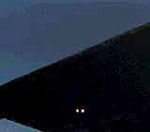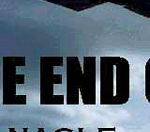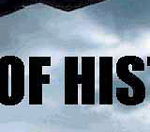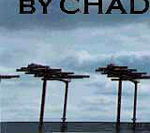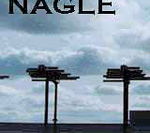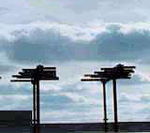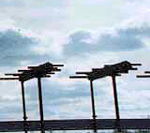|
Chad
Nagle is traveling in Moldova and the Ukraine. His column will
return Friday, March 16.
February
23, 2001
Musings
On The New Imperialism and Post-Western World Government
As
I finish up this rather long and rambling piece, I’m sitting in
the Café Odeon in Zurich, where Lenin used to drink coffee
when he lived here before returning to Russia in 1917. I’m getting
ready to fly to Chisinau, Moldova, via Budapest this evening,
and although that trip should produce a more down-to-earth piece
for this column, at the moment I feel inspired to write about
imperialism and the demise of the West. A vision has haunted me
lately, so I hope Antiwar readers will indulge me while I try
to crystallize it in an article with a little less vitriol than
usual.
A
BRUSH WITH COMPLACENCY
Shortly
after the New Year, at the home of an old friend in Georgetown,
I met a young woman whose husband worked in Clinton’s White House.
She had that super-cheery, complacent demeanor I always associate
with the younger Washingtonian set. She wasn’t too keen on Bush’s
victory, obviously, because Clinton had done so many great things
for everybody and Gore would have carried right on making the
world a better place. But everything was going to be all right
for her and her tired, disheveled, disillusioned-looking spouse,
no matter who was in office in Washington.
Later,
after her husband had gone to a DC nightclub for a Clintonian
farewell bash, the conversation turned to promoting democracy
abroad. This somehow led me to comment in an ominous tone on how
the world was ever more rapidly shaping up into north-south, as
opposed to east-west. She scoffed condescendingly: "Oh, everybody
knows tha-at."
Now
"socializing" is not my forte. The temptation to snap
at smug fellow Americans can be overwhelming at times, and this
was a time when decorum failed me. I asked this woman whether
she had ever been anywhere in the "East" and, of course,
she said no. Then I asked her how she could be so matter-of-fact
about the prospect of – basically – the end of the "West."
As she tried to formulate an answer, clearly incredulous that
anyone could inject such unnecessary gravity into the cozy little
scene, I told her I’d been across the sewer of capitalist corruption
we now call the former Soviet Union. And I said that even if she
was happy about globalization ultimately meaning a merger with
Eurasia’s vast dump, I wasn’t.
During
the uncomfortable silence that briefly followed, it was understood
by all present that I had poisoned the air. I remembered Blake’s
words – "A truth that’s told with bad intent beats all the
lies you can invent" – and felt a brief pang of remorse.
That’s the problem with these little social gatherings. It always
seems better to make a scene than to be bored.
WHITHER
THE WEST?
It
was easier to identify the West when political and economic influence
backed by projectable military power was divided between two "superpowers,"
just as it’s always easier to define yourself by what you’re against
than by what you’re for. The Russians now have a "market
economy," a "civil society" (non-governmental organizations),
a "parliamentary democracy," and a written constitution,
so things are in a definite gray zone where defining the West
in relation to Russia is concerned. So what if a bunch of ex-nomenklatura
are in charge in Russia? No different in NATO member Poland, where
the West has accepted two election results in five years as proof
that gray and dull President Alexander Kwasniewski – a former
minister of Communist Poland – is overwhelmingly popular even
though 70% of the population lives below the poverty line. Never
mind that Kwasniewski was schooled in a system that used the results
of sham elections as evidence of popular support, just like the
rest of our client heads of state. From the beginning, Putin pledged
his support for "free market" democracy and "reform,"
and that was good enough for our great leaders. Amid Western leaders’
fidgety responses to Putin’s early public suggestion that the
Russian Federation might one day join NATO, the portentous question
loomed: "Why not?"
The
images most Westerners probably summon to mind when they think
of the West are things like decency, duty, loyalty, justice, honor,
courage, and so forth. But these notions aren’t much good for
distinguishing the West from other civilizations because every
civilization will ultimately lay claim to such features. Going
back to the Papal Revolution of the 11th Century and
talking about a division of legal jurisdictions between secular
and ecclesiastical authorities doesn’t seem especially helpful
in the modern era either. So better to define the West today by
one overriding characteristic everybody can agree on – a profusion
of "legal fictions."
"Enlightened
self-interest," a cornerstone of the rule of law in the West,
provides the formalistic justification for legal fictions, like
corporations, currency and private property. That night in Georgetown,
I never got around to discussing legal fictions with the Complacent
Clintonista, even though her material well-being undoubtedly depended
to a great extent on the legal fictions just mentioned. My guess
is she never thought about it. Maybe Americans are just supposed
to take some things for granted.
In
the early years of the Soviet Union, Lenin and the Bolsheviks
destroyed Russia’s legal fictions by force and terror. They deliberately
and successfully debauched the Russian currency, outlawed private
property and abolished institutions of state like the courts.
In fact, Lenin consciously abandoned traditional conceptions of
conscience in favor of something new, "revolutionary conscience."
The "new man" would abandon the old norms in favor of
those advancing the historically inevitable cause of the "Revolution."
Over
seventy years, the Soviet regime gradually loosened its repressive
grip on its subjects, but it never restored the old legal fictions.
The citizens’ conception of money and property would never return
to that of their ancestors. Meanwhile, America periodically conferred
legitimacy on the Soviets. FDR recognized Stalin’s USSR in 1933,
and Nixon continued the process with Détente in the late
Sixties. Today in the ex-USSR, most people still don’t have faith
in the integrity of their post-Communist legal fictions as servants
of the common weal. They see the new corporations as fronts for
vicious, self-serving mobsters. They see their money as paper
to be gotten rid of before its value drops through the floor.
However much America crows about "reform" and "democracy,"
we’re not going to turn this around. How could we, when we already
put the stamp of legitimacy on the Soviet system repeatedly? After
several generations of life under socialist law, the republics
of the old Soviet bloc are not going to be "converted back"
by the United States.
|
Text-only
printable version of this article
Write
to Chad Nagle
Chad
Nagle is a professional writer and lawyer licensed in the District
of Columbia. He has been published in the Wall Street Journal
Europe, the Washington Times, and several other periodicals. Mr.
Nagle traveled extensively throughout the ex-USSR from 1992-97
as a research consultant. Since mid-1999, he has traveled widely
in the former Communist bloc on behalf of the British
Helsinki Human Rights Group.
His
column, At the End of History, appears alternate Fridays
on Antiwar.com.
Previous
articles by Chad Nagle
Musings
On The New Imperialism and Post-Western World Government
2/23/01
Soros:
False Prophet-At-Large
2/9/01
Belarus:
Oasis In The Heart Of Europe
1/26/01
Serbia
Joins the West
1/12/01
Death
of a Patriot
8/31/00
The
Twilight of Sovereignty in Azerbaijan
7/14/00
The
Ukrainian Model of Democracy
5/5/00
The
Slow Strangulation of Democracy in Slovakia
3/28/00
Patrick
Buchanan and the American Reformation
1/25/00
The
Betrayal of Democracy in Post-Soviet Georgia
11/30/99
|
PERICLES
IS ILL, AND I’M NOT FEELING VERY WELL MYSELF
The
individual’s mind only needs to take a small cognitive hop from
perceiving a legal fiction as a moral force in society to perceiving
it as a lie. For a whole society – absent a revolution or counterrevolution
– the shift in perception is much more gradual, about as gradual
as a country’s slide from cultural to moral bankruptcy. If it’s
true, therefore, that cultural bankruptcy occurs concurrently
with moral bankruptcy, then America is in trouble, because we
are rapidly becoming a cultural wasteland.
Our
youth – who are far more likely to be able to recite rap songs
than great poetry – carry guns to school and sometimes use them
on each other. The most popular national pastime is watching TV,
and the most popular shows are programs such as staged "wrestling,"
sitcoms with canned laughter to let viewers know when to laugh,
or moronic "reality TV" shows like "Temptation
Island." The utter trash that’s up for film and music awards
isn’t even worth commenting on.
Our
leaders talk about the decline in drug use, but even if it were
true that illicit drug use were down, how many people are on some
kind of prescription psychotrope in America today? Tell a fellow
American you’re feeling depressed, and there’s a better than even
chance they’ll respond with a completely straight face: "Why
don’t you get some drugs?"
American
politicians trumpet the infallibility of the United States without
a trace of humility, and some of them – like Sen. Jesse Helms
– complain about threats to US sovereignty without criticizing
globalization. For them, sovereignty is a one-way street. America
is supposed to rule the world and the historical fate of empires
is irrelevant. They invariably mistake Americans’ historical good
fortune for virtuousness.
The
other view of globalization sees America dissolving into the New
World Order as the elite that holds that view remains comfy and
privileged and forgets America ever existed. Already, with the
Humanities so cheapened in American education, it’s hard to find
anyone under thirty with any memory or significant understanding
of what the Soviet Union was. America’s is a culture of forgetting,
and we’ve forgotten what it means to be the West. It’s highly
doubtful that people like the Complacent Clintonista ever really
knew.
WELCOME
TO THE NORTH
Sadly,
the Complacent Clintonista is almost certainly right, not about
being complacent but about the North and the South. East and West
are no longer divided by a profound ideological difference over
how Humanity should be politically organized. "Amerrca"
(I love the way Dubya says it) will hold up clapped-out and impoverished
Russia as a big bogey a while longer, and there will probably
be more instances of accusation and recrimination between Washington
and Moscow before all’s said and done. But it’s a stretch to see
Putin’s gang as more than a bunch of heavies trying to get their
"cut" from whatever the US and Europe want to do in
the ex-USSR. We’ll have a few more little wars and rocket launchings
in the North to reaffirm our manliness and show off expensive
new weapons systems, but basically the party’s over. The West’s
corporatism, monetarism and mercantilism will merge – dialectically
– with the dreary state socialism of the East to create a kind
of "corporatist socialism" of the North, with maybe
the most unsavory political elite the World has yet seen.
The
southern border of the ex-USSR will almost certainly conform roughly
to the southern border of the North because the administrative
rules and regulations of the Soviet system (which constituted
the core of President Putin’s formal legal education) were rigid
and consistent enough to organize and control Soviet society,
and will easily adapt to the New World Order. The South will mostly
remain war-torn, disease-ridden, poor and agrarian, and a convenient
target for regular bombings by the North.
In
the Complacent Clintonista’s obvious future, the "West"
now stretches from the Bering Straits to the Bering Straits and
therefore no longer exists in any geographical sense. Of course
the "West" was never a purely geographical term, but
why not now just dispense with the expression altogether? From
here on out, barring some freak accident of history, East-West
resides on the ash-heap of History.
America
is certainly the dominant power in the world now, and therefore
in the North. America’s imperialism is seemingly unstoppable.
Business must be served and the salaries of Wall Street CEOs must
increase. Given this situation, maybe American policy-makers see
no alternative but to continue to try to secure and stabilize
the industrialized North on Washington’s terms with the aim of
ruling the North indefinitely. Washington will try to do this
through "international" political apparatuses behind
which it can hide its peculiar and unprecedented form of imperialism.
But however disguised, imperialism it will nonetheless be, and
if history is any judge, it will corrupt itself sooner or later
as false piety and self-righteousness collapse with the last remnants
of Western civilization.
In
the meantime, though, what kind of political apparatus will the
US use to advance its neo-imperialism? What kind of structure
represents the embryo of the government of the North?
ENTER
THE OSCE
Strangely,
if you mention the Organization for Security and Cooperation in
Europe (OSCE) to most relatively educated and well-informed Americans,
they will answer: "What’s the OSCE?" Quite understandable,
in a sense, because the OSCE is after all "European."
Even the OSCE Handbook states in its introduction: "The Organization
behind [the initials] is still not widely known, partly because
of its origins as a low-profile diplomatic process."
But
American ignorance of the OSCE is not entirely excusable because
the organization in its current guise isn’t really European. The
United States, Canada, and the states of ex-Soviet Central Asia
are all full members. Furthermore, the OSCE is not a toothless
entity. The Handbook explains the organization’s low profile in
terms of "its broad range of activities and core competencies,
as well as its unique concept of security" being "not
easy to grasp." But apart from the fact that the OSCE’s "diplomatic"
maneuverings make themselves felt almost everywhere in the North,
Americans should also know about the OSCE because it is – to paraphrase
Saddam Hussein – the "mother of all NGOs."
The
origins of the OSCE go back to 1954, when the Soviets first proposed
a 50-year treaty to be signed by all European states to foster
pan-European security. In 1973, the Conference on Security and
Cooperation in Europe (CSCE) opened in Helsinki with 35 states
(the whole of Europe plus the USA and Canada). Two years later
the heads of state of these 35 countries signed the CSCE Final
Act, and the Handbook proudly displays a nice photo of General
Secretary Leonid Brezhnev – king of the crusty old Communist Party
curmudgeons – putting his John Hancock to the agreement on "the
implementation of the provisions of the Act," on "the
deepening of their mutual relations," and on "the improvement
of security and the process of co-operation."
In
1992, the CSCE "declared itself to be a regional arrangement
in the sense of Chapter VII of the UN Charter" – the "region"
being the North. The CSCE transformed itself from a "process"
to an "organization" more or less unnoticed by the world,
as it dispatched missions to the Yugoslav areas of Kosovo, Sandjak
and Vojvodina in 1992. In Budapest at the end of 1994, the CSCE
was "re-christened" as the OSCE. There are currently
56 member states: the 15 states of the ex-USSR, the 15 states
of the European Union, Albania, Andorra, Armenia, Azerbaijan,
Belarus, Bosnia & Herzegovina, Bulgaria, Canada, Croatia,
Cyprus, the Czech Republic, Estonia, Georgia, the Vatican, Hungary,
Iceland, Kazakhstan, Kyrgyzstan, Latvia, Liechtenstein, Macedonia,
Malta, Moldova, Monaco, Norway, Poland, Romania, the Russian Federation,
San Marino, Slovakia, Slovenia, Switzerland, Tajikistan, Turkey,
Turkmenistan, Ukraine, the United States, Uzbekistan and Yugoslavia.
Israel, Egypt, Algeria, Jordan, Morocco, Tunisia, Japan and South
Korea are listed as "Partners for Cooperation," the
civilian equivalent of membership in NATO’s "Partnership
for Peace."
The
OSCE Handbook lists the "basic priorities" of the organization.
They are "to consolidate the participating States’ common
values and help in building fully democratic civil societies based
on the rule of law; to prevent local conflicts, restore stability
and bring peace to war-torn areas; to overcome real and perceived
security deficits and to avoid the creation of new political,
economic or social divisions by promoting a co-operative system
of security." These may all sound like terribly noble goals
that everyone can sign on to, but there is one simple, glaring
feature of the OSCE that no one seems to want to acknowledge.
That is, by its very design, structure, and the nature of its
operations, the OSCE cannot promote democracy as an end in
itself. Why? Because the OSCE doesn’t actually have much to
do with democracy. Rather, it’s about "security and cooperation"
as defined by the West (primarily the United States). If a genuine
display of popular will, however peaceful, results in the advent
of a national government that doesn’t see eye-to-eye with our
"cooperative system of security," then it has to be
branded as "undemocratic" by the OSCE. I apologize to
readers for seeming pedantic in spelling out a no-brainer, but
what I can never understand is why – if something is so obvious
– no one ever talks about it.
The
little contact I’ve had with OSCE observers in countries where
I’ve observed elections has not been impressive. Most often, they
are young Westerners eager for a free ride. The Americans are
likely to be people who say "Du-u-u-ude!!!" In
Washington, I met an American with an incredibly irritating laugh
(heh-heh-heh-heh-heh-heh-heh) who had worked as an OSCE observer
in Bosnia and thought he knew all there was to know about history
and democracy in the ex-Yugoslavia. Needless to say, NATO had
done a noble deed in Kosovo as far as he was concerned. In Georgia,
I met a young German leftist OSCE observer who blamed the separatist
wars in the Caucasus on the lack of "Protestantism."
He excitedly waved his finger when talking about the EU, saying
"vot vee really need iz ze poLITICAL union! Vonce vee have
ze political union, zen everyssing vill be okay!" Sieg heil,
buddy.
So
has the OSCE done any good in its "region" of operation?
Has it brought more peace than there would have been without its
intervention? Has it actually fostered more "democracy"
and "civil society" than would have existed absent its
involvement? Obviously, it’s impossible to say. However, the OSCE
is an inherently assimilationist body that has its fingers in
everybody’s pies. It has field missions and offices all over the
place, and all of these regularly issue pompous statements on
the level of democracy in their host countries. Usually, when
it has participated in election monitoring, the OSCE will declare
whether the election was "free and fair" at a press
conference the next day. The few of these I’ve attended have demonstrated
that the level of the mission chiefs’ tolerance of observers’
dissent is very low. Why is it an outrage to suggest that a Western-funded
organization whose primary objective is to promote "security
and cooperation" reaches its verdicts on the legitimacy of
a foreign elections generally depending on who ultimately wins?
Yet if you suggest as much, most observers will dismiss your concerns
out of hand. In reality, the OSCE acronym should probably stand
for "Organization for Security and Cooperation or Else"!
At
any rate, I see no reason why the OSCE can’t be the prototype
for New World Government. The OSCE already contains the embryos
of all the necessary institutions. It has a Ministerial Council,
an annually-rotating "Chairman-in-Office" (the chairmanship
is currently held by the democratic civil society of Romania),
a Secretary General and a Secretariat, a Parliamentary Assembly,
and a Court of Conciliation and Arbitration. Surely among these
and the other institutional bodies that make up the OSCE, we can
put together the model government for the "democratic civil
society" of the North that we need. Then again, I suppose
it’s happening as I write this. Just as the OSCE changed imperceptibly
from an organization to a process, so it will take on a governmental
role without anyone noticing. Maybe the acronym will then be changed
to the Organization for Socialist Corporatism Everywhere.
IF
THERE IS HOPE, IT LIES IN AMERICA
Of
course, all this is just musing brought on by an exchange one
evening. It’s still possible, after all, that the world will not
divide between north and south, and that instead we will have
something like the three Orwellian blocs from 1984 – Oceania,
Eurasia, and Eastasia. The UK has proven itself a most reliable
American lapdog in the ongoing bombing of Iraq, and talk of Britain
becoming a member of NAFTA is always on the backburner. So Oceania
could become a reality if Australia joins up. Russia and France
(Eurasians) have complained loudly about the last bombing raid
on Iraq by Oceanian forces, and since WWII the Germans have always
sought to curry favor with their fellow Eurasians in Moscow. The
Eastasian Japanese appear to have just about lost patience with
the Oceanian military presence, and the recent killing of Eastasian
citizens by an Oceanian submarine has only highlighted the divide.
But
whether the world is "North-South" or Oceania-Eurasia-Eastasia,
we can be assured of regular plundering wars regardless of how
sincere Dubya sounds when he talks about wanting a world that’s
as "peaceful as possible." National borders will wear
away as nation-states become increasingly formalistic. Soldiers
of the North born in America could find themselves saluting an
Albanian OSCE Chairman-in-Office who was once a "freedom
fighter" for the KLA.
America
will be the leading force in reducing nation-states to pure formalities.
Some of the post-Soviet political figures (I think one of them
may have been Czech President Vaclav Havel) have said something
to the effect that "money knows no nationality." In
the current globalizing world that appears to be true, and makes
a New World Order seem all the more inevitable. The issuance and
regulation of currency will continue to centralize as it has throughout
history. Since globalization is following money, all that could
stop it would be an unforeseen political force that really valued
something higher than dirt-cheap materialism.
Although
it looks unlikely at this point, if we Americans could find something
to unite us besides the yankee dollar, we could perhaps halt the
end of the West. The dollar cannot unite one American to another
as compatriots or brothers-in-arms to any greater extent than
it can unite an American to an Uzbek. The Constitution cannot
unite Americans as a nation either. Every individual interprets
the Constitution differently, and very few Americans have bothered
to read it in any depth. Immigrants seeking naturalization aren’t
even required to look at the Constitution, never mind learn it
by heart. The unifier has to come in the form of something that
can give us an identity apart from money or a legal document.
And it has to be America, because we’re Western civilization’s
last hope.
Then
again, maybe not enough Americans care, and our national identity
is really defined first and foremost by apathy. America is the
place where everything is always okay. Take it easy, dude. Go
with the flow. Skip into the sunset holding hands with the Complacent
Clintonista because everything’s going to be all right. For all
I know, maybe it will be. But I can’t quite rid myself of a hunch
that Lenin may be laughing at us from beyond the grave.
Please
Support Antiwar.com
A
contribution of $50 or more will get you a copy of Ronald Radosh's
out-of-print classic study of the Old Right conservatives, Prophets
on the Right: Profiles of Conservative Critics of American Globalism.
Send contributions to
Antiwar.com
520 S. Murphy Avenue, #202
Sunnyvale, CA 94086
or
Contribute Via our Secure Server
Credit Card Donation Form

or

Have an e-gold account?
Contribute to Antiwar.com via e-gold.
Our account number is 130325
Your
Contributions are now Tax-Deductible
|

